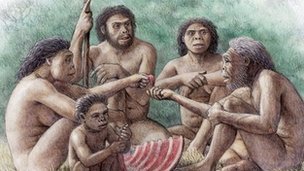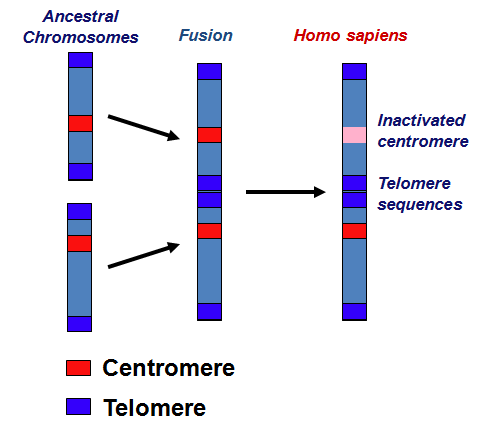That's an excellent and important question from a religious perspective, for those faith traditions that posit an immaterial essence or dimension to the human person, like my own does.
The Catholic tradition has never been absolutely clear on this, and indeed the Church admits itself that we cannot be certain at what point a material being is ensouled from a strictly scientific perspective, for obvious reasons (not least that the soul is not discoverable by the tools of scientific investigation, sofar as we can tell).
The general viewpoint today is that the process of the immortal, spiritual soul and mortal, physical body coming into being happens simultaneously at conception, with the parents providing the matter through the fertilized embryo and God infusing the soul.
But this didn't used to be the common opinion, certainly not in the medieval period, and it's not doctrinally defined today either.
In the Catholic Bible, we have a book in our Old Testament called
The Wisdom of Solomon, which is part of scripture for us and the Orthodox but not for Protestants or Jews. This sacred text suggests something a bit different, which has long made commentators and theologians ponder:
Wisdom 8:19-20 states: "
As a child I was by nature well endowed, and a good soul fell to my lot; or rather, being good, I entered an undefiled body."
At first, he says that a good soul "
fell to his lot", which suggests that his body was created first and then became ensouled in the womb at some stage. But then, he seems to correct or qualify himself, by clearly contending that the "I" of his immortal soul came first and then entered his body.
This is an exegetical issue, of sorts.
The answer naturally has bearing on the morality of procured abortion. There was a long-standing debate in the early and medieval church, (between those espousing an Aristotelian and Pythagorean natural philosophy, respectively), over whether or not an unformed foetus should actually be considered "
ensouled".
A number of church fathers, popes and theologians - such as St. Augustine of Hippo, the Apostolic Constitutions of the 4th century, Pope Innocent III, Gregory IX and St. Thomas Aquinas - argued that for a number of weeks post-conception, the foetus wasn't a person and so, while abortion of pre-ensouled foetuses was overwhelmingly viewed as still being a sinful or undesirable practice, it could not be equated with murder until the foetus "
quickened" in the womb and became formed; such that excommunications or equivalent ecclesiastical sanctions were for a long time only issued forth against women and male physicians who aborted '
formed' foetuses after their wombs had quickened, rather than early terminations of unformed foetal tissue.
It was only in the 1860s that the opinion started to gravitate firmly towards the "
conception is point of ensoulement" tenet of belief, due to a reaction against increasing secularization and the decline of Aristotelian science, courtesy of advances in embryology.
See:
History of Christian thought on abortion - Wikipedia
Several historians have written[53][54][55] that prior to the 19th century most Catholic authors did not regard termination of pregnancy before "quickening" or "ensoulment" as an abortion...
Penitentials in the Middle Ages normally distinguished between the two, imposing heavier penances for late-term abortions and a less severe penance was imposed for the sin of abortion "before [the foetus] has life".
Augustine believed that an early abortion is not murder because, according to the Aristotelianconcept of delayed ensoulment, the soul of a fetus at an early stage is not present, a belief that passed into canon law.[23][24]Nonetheless, he harshly condemned the procedure (De Nube et Concupiscentia 1.17 (15))
Thomas Aquinas, Pope Innocent III, and Pope Gregory XIV also believed that a fetus does not have a soul until "quickening," or when the fetus begins to kick and move, and therefore early abortion was not murder, though later abortion was.[10][23]
The standard account can be read from Gratian's 12th century compendium of canon law, the
Decretum (A.D.1140), which was essentially the medieval church's authoritative legal code:
§1. He is not a murderer who brings about abortion before the soul is in the body. (Ibid. c. 8, C. 32, q.[2]). For even if an unformed embryo had, in some as yet unformed way, a soul (and one should not plunge into this great question and give a rash unreflective opinion), the law would not call it murder, because one cannot tell when a body that lacks sensation has a living soul.
(Decretum gratiani, part 5, Case 32, q II, C8)
Officially, therefore, Catholic Christianity traditionally tended to support a doctrine of "mediate" animation, i.e., the fetus was not formed into a true person or soul until some time during pregnancy.
The Catechism of the Council of Trent (1566), also dismisses the idea that the soul is infused at conception (i.e. that personhood is conferred upon fertilization) and actually uses the supernatural nature of Jesus's conception to clarify this:
THE CATECHISM OF TRENT: The Creed - Article III
"What surpasses the order of nature and human comprehension is, that as soon as the Blessed Virgin assented to the announcement of the Angel in these words, Behold the handmaid of the Lord; be it done unto me according to thy word, the most sacred body of Christ was immediately formed, and to it was united a rational soul enjoying the use of reason; and thus in the same instant of time He was perfect God and perfect man.
That this was the astonishing and admirable work of the Holy Ghost cannot be doubted; for according to the order of nature the rational soul is united to the body only after a certain lapse of time."
And that was a statement of an ecumenical council. It blithely and unquestioningly assumes the distinction between an "
unensouled" fetus at conception and an "
ensouled" fetus after a
'certain lapse of time'.
Jesus was thought to have been the only human animated at conception courtesy of a miracle of the Holy Spirit, whereas everyone else started out as unensouled fetal tissue until a certain lapse of time in which the fetus became 'quickened' in the womb (capable of sensation and movement).
The Church didn't define the length of the time lapse from conception, just that there was one
. Generally, however, the
quickening was long thought by theologians to occur at the time the woman first felt movement in her womb. If talking about specific time periods, it thus ranged from 40 - 80 days after conception but there was no completely agreed definition.
Even today though, the Church does not teach that we can be sure that the embryo is animated at the point of conception. The stance actually goes that probabilism may not be used where human life
may be at stake, thus the 1992
Catholic Catechism notes that the embryo must be treated from conception "
tamquam, "as if" a human person". That's an important qualifier. It further states that: "
the church has not determined officially when human life [i.e. personhood] actually begins" and respect for life at all stages, even potential life, is generally the context of
church documents.
Consider this Vatican document:
(Donum Vitae 1987)
This Congregation [for the Doctrine of the Faith] is aware of the current debates concerning the beginning of human life, concerning the individuality of the human being and concerning the identity of the human person...
Certainly no experimental datum can be in itself sufficient to bring us to the recognition of a spiritual soul...The Magisterium has not expressly committed itself to an affirmation of a philosophical nature, but it constantly reaffirms the moral condemnation of any kind of procured abortion.
So it refrains from directly affirming the moment of ensoulement and leaves it open that the earlier, traditional Thomist understanding could still be the correct one. But a lot of Catholics don't realize this.


